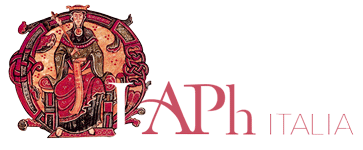
- Questo evento è passato.
CFP | The Sexual Politics of Freedom –
21 Febbraio 2020
[Call for Papers]
The Sexual Politics of Freedom
May 22nd& 23rd 2020
Irish Centre for Human Rights,
National University of Ireland, Galway
Keynote speakers: Prof Ratna Kapur (QMUL) and Prof Linda Martín Alcoff (CUNY)
At stake in framing the theme of this conference in terms of ‘the sexual politics of freedom’as opposed to ‘the politics of sexual freedom’is to draw our attention to the ways in which the politics of freedom has always been implicated in sexual politics (Bhattacharyya 2008, Butler 2016, Kapur 2018). Such a sexual politics is rooted in the histories of colonialism, secularism, and progress and attuned to a temporality and geography of European “civilization” and liberalism (Mohanty 1988, Spivak 1993). Such a political logic has onto-epistemologically placed limits upon our capacities to imagine a politics of freedom. The hegemonic account of liberal feminism which pervades discourse on human rights, justice and equality, both within and outside the academy, has meant that much of our scholarship and theorising has taken place in the shadow of, and in response to this liberal rendering of feminist politics. Such a fact has meant, we have engaged in a logic of self-sabotage, preventing us from thinking critically about and articulating, on our own terms, new forms of feminist struggle for freedom (Phillips 2019).
With this conference, we hope to explore and begin to address this problematique, refusing the questions posed of women who do not conform to the liberal ideal of “female” freedom, as to why they would “subject” themselves to a life within a so-called “patriarchal order.” Such an experience is one many of us who research and write about the lives of women living in the non-European ‘World’ encounter on a regular basis in explaining and analysing why freedom for these women need not align with gender- and identity-neutral onto-political presuppositions of liberal subjectivity and the hegemonic paradigm of human rights discourse (Alcoff 2006). At stake, still, is the problem of subalterneity, and the location of such women in the place of “disappearance,” which Spivak (1988) describes as ‘the violent aporia between subject and object status.’
Taking our lead from the work of Saba Mahmood and Lila Abu-Lughod, we raise the question of the sexual politics of freedom from a non-Kantian conception of ethics as Idea (Colebrook 1998), exploring rather, the ethical lives and practices of women struggling for freedom. Such an approach, inspired by Mahmood (2005/12) and Foucault (1988, 1989) opens up a space for us to understand more clearly how practices – ethical, religious, social, and political – are concerned not simply with the regulation of life, but the constitution of an embodied form of agency and subjectivity which is particular to its own contexts and conceptions of freedom.
What can a feminist politics of freedom that centres and begins with the experiences, lives and struggles of women look like (Narayan & Harding 2000)? What would our thinking and research become if the work of post-colonial feminists and the experiences (cf. Alcoff and Potter 1993) of non-European women were not an afterthought (Bhambra 2014), a footnote, a feature of the Undercommons (Moten and Harney 2013), a final lecture to be rushed through before exam preparation? At stake in short, is an invitation to scholars and activists motivated by any of the concerns and provocations raised here, to assemble, accompany one another, think together, and engage in critique concerning the sexual politics of freedom.
The Irish Centre for Human Rights, at the National University of Ireland – Galway, invites potential participants from across the disciplinary spectrum to submit papers of 20 minutes duration.
Topics and themes which presenters may like to explore in their papers include, but are not limited to the following:
· Frames of recognition and apprehension
· Feminist Epistemologies
· Epistemic injustice
· The myth of “neutral objectivity”
· Re-thinking the basis of feminist solidarity
· Ethics, gender and embodiment
· Feminism in and outside of the “teaching machine”
· Challenges for contemporary human rights practice
· The politics of sexual time
· Feminist practice beyond Eurocentrism
· Sec(x)ularism and Islamophobia
· Theorising subject formation
· Refusing subjecthood
· Differential allocations of grievability
· Feminist conceptions of freedom
· Feminist solidarity
· Sex, gender and rights
Please submit abstracts (approx. 250 words) to sexualpolitics.freedom@gmail.com by the 21st of February 2020. The abstracts should be submitted as a world/pdf attachment, and contain the authors name, institutional affiliation, and a summary of the proposed paper.
For further information or queries contact conference organiser Hasret Çetinkaya (h.cetinkaya1@nuigalway.ie)
A registration fee for attendance and participation will apply for The Sexual Politics of Freedom Conference. For more details see: https://thesexualpoliticsoffreedom.blogspot.com/p/registration.html
